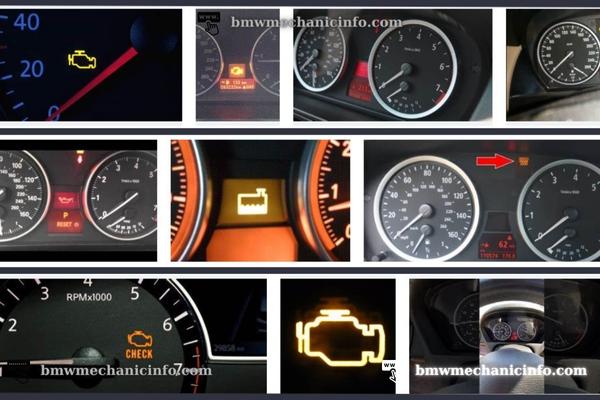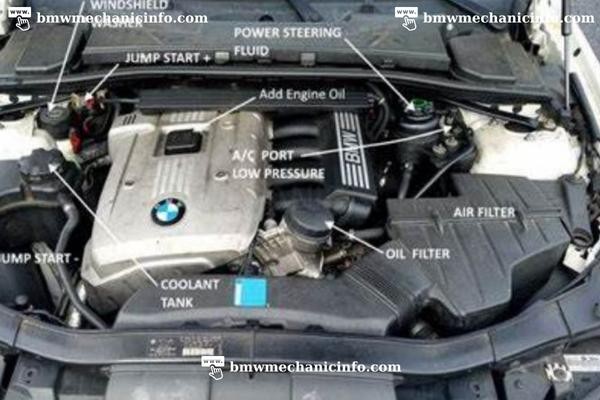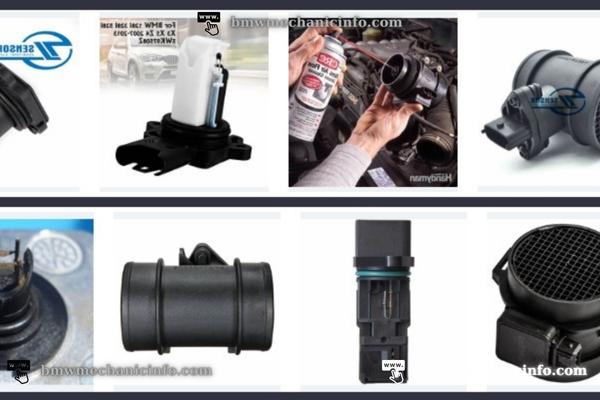What are the BMW X1 mechanical problems? The BMW X1 is one of the most sought-after subcompact luxury crossovers on the market, yet it has its share of mechanical issues.
Thankfully, there are easy ways to keep your BMW running smoothly for years. If you notice any of these problems, don’t hesitate to bring them in for an inspection at a certified BMW dealer or reliable mechanic.
1. Check the engine light for BMW X1 mechanical problems
The BMW X1 Check Engine Light will illuminate when an issue is detected with its Onboard Diagnostics System. It is essential to address these issues quickly to prevent further BMW X1 mechanical problems.

The Check Engine Light can appear for many reasons, from a loose gas cap to something more severe like a misfiring engine. No matter the cause, drivers should never attempt to reset the light without first addressing the underlying problem.
Every BMW X1 features a vacuum system that helps reduce emissions by routing fumes as gasoline evaporates. If you notice your RPMs are high during idle or sometimes surge, a vacuum leak could be to blame.
2. Another of the BMW X1 mechanical problems is poor acceleration
If your BMW X1 is experiencing slow acceleration, it could indicate a fuel injector problem. Fuel injectors are tiny passageways that send fuel directly to your engine’s fuel pump. If these passages become blocked with dirt and debris, your engine won’t be able to function optimally.
You may experience slow acceleration or an abrupt loss of power. Another potential cause of slow acceleration could be a damaged clutch disc. This device transfers energy from your engine to the gearbox onto your wheels.
3. Engine delay for BMW X1 mechanical problems

If your BMW X1 is experiencing a delay when accelerating, this could indicate an issue with the fuel/air mixture. A vehicle’s combustion engine requires precisely measured amounts of both for optimal performance.
An engine runs too lean when the correct amount of fuel doesn’t reach the cylinders at the correct pressure. This indicates that something is wrong and should be addressed promptly before it leads to more severe issues like engine damage.
Thankfully, you can hire a highly-rated mobile mechanic to quickly diagnose the BMW X1 mechanical problems and identify what needs to be done to fix them. And the best part? You don’t even need to leave your home or office!
4. Sluggish Fuel Consumption
If your BMW X1 is experiencing slow fuel consumption, you can try altering your driving habits to improve it. Doing so will enable you to save money on gas while still getting excellent performance from your car.
A clogged fuel filter is another common cause of poor engine performance. Not only does it prevent fuel supply, but it can also decrease power and jerking when accelerating.
The catalytic converter is an integral component of your BMW X1, helping to transform harmful exhaust gases into less hazardous byproducts. Over time, however, toxins from the exhaust can clog up this component and prevent it from doing its job correctly.
5. Dirty Mass Airflow Sensor

When the BMW X1 mechanical problems Dirty Mass Airflow Sensor (DMAS) is illuminated, your vehicle’s engine cannot accurately calculate a proper mixture of air and fuel, leading to poor performance and fuel economy. Your BMW X1’s air intake system utilizes a mass air flow sensor to monitor oxygen flow into your car’s engine for maximum fuel efficiency.
This data is sent directly to the onboard computer, which controls how much fuel is injected into the machine. The mass air flow sensor can become dirty and should be cleaned periodically, primarily if your vehicle has been driven in rough conditions.
6. Another of the BMW X1 mechanical problems is the spark plugs
Your BMW X1’s spark plugs are essential for igniting the air-fuel mixture inside the engine, providing power that helps your car accelerate and run efficiently. A malfunctioning spark plug can cause poor acceleration, rough idle, and engine misfires. Additionally, it could reduce fuel economy and increase emissions.
Unrepaired spark plugs can prove costly and hazardous if not addressed promptly. Not only that, but they may damage the catalytic converter and other vital components.






Muchas gracias. ?Como puedo iniciar sesion?